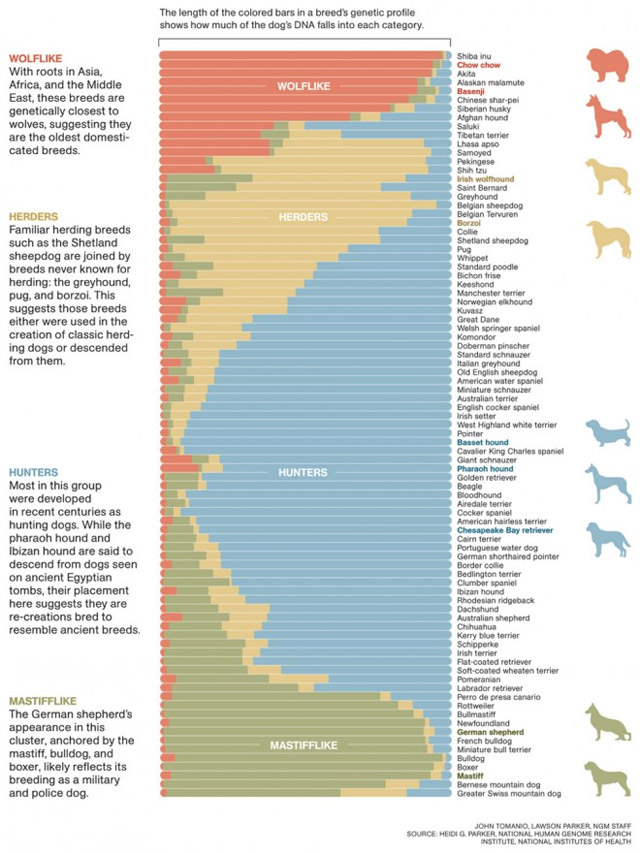Sadly, most infographics these days look like this, functioning as a cheap and easy way to gussy up numbers. But when done properly, infographics are very effective in communicating a lot of information in a short period of time and can help you see data in new ways. In The Best American Infographics 2013, Gareth Cook collects some of the best ones from over the past year. Wired has a look at some of the selections.

In the NY Times, Gareth Cook writes about the advantages some companies have found in employing people with autism.
To his father, Lars seemed less defined by deficits than by his unusual skills. And those skills, like intense focus and careful execution, were exactly the ones that Sonne, who was the technical director at a spinoff of TDC, Denmark’s largest telecommunications company, often looked for in his own employees. Sonne did not consider himself an entrepreneurial type, but watching Lars — and hearing similar stories from parents he met volunteering with an autism organization — he slowly conceived a business plan: many companies struggle to find workers who can perform specific, often tedious tasks, like data entry or software testing; some autistic people would be exceptionally good at those tasks. So in 2003, Sonne quit his job, mortgaged the family’s home, took a two-day accounting course and started a company called Specialisterne, Danish for “the specialists,” on the theory that, given the right environment, an autistic adult could not just hold down a job but also be the best person for it.
I particularly liked Tyler Cowen’s observations:
Tyler Cowen, an economist at George Mason University (and a regular contributor to The Times), published a much-discussed paper last year that addressed the ways that autistic workers are being drawn into the modern economy. The autistic worker, Cowen wrote, has an unusually wide variation in his or her skills, with higher highs and lower lows. Yet today, he argued, it is increasingly a worker’s greatest skill, not his average skill level, that matters. As capitalism has grown more adept at disaggregating tasks, workers can focus on what they do best, and managers are challenged to make room for brilliant, if difficult, outliers. This march toward greater specialization, combined with the pressing need for expertise in science, technology, engineering and mathematics, so-called STEM workers, suggests that the prospects for autistic workers will be on the rise in the coming decades. If the market can forgive people’s weaknesses, then they will rise to the level of their natural gifts.






Stay Connected